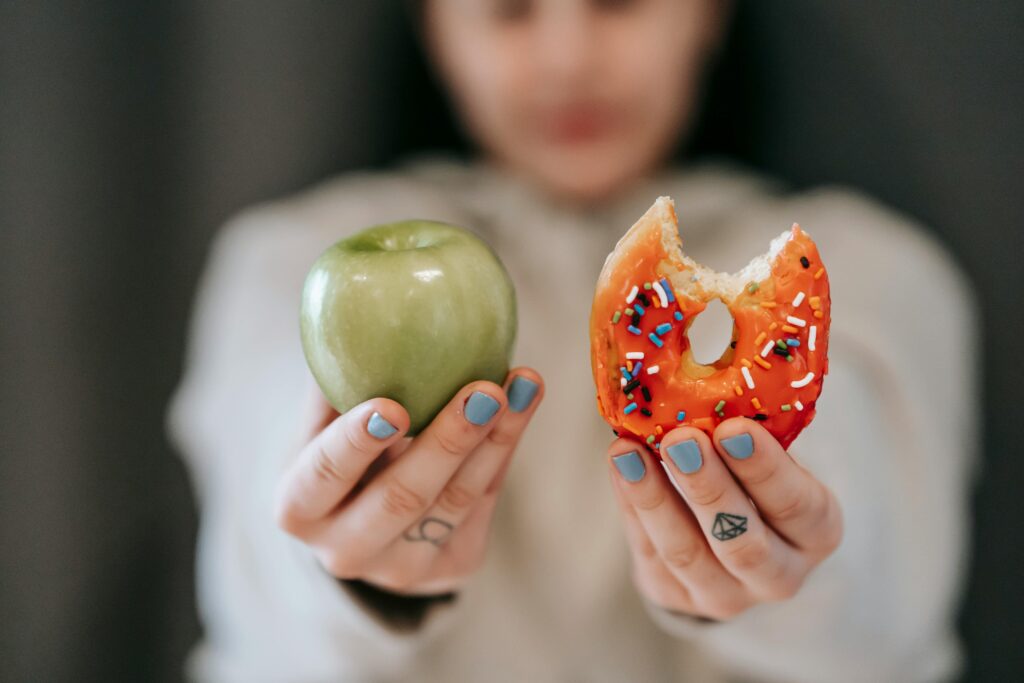When it comes to achieving glowing, healthy skin, the saying “you are what you eat” couldn’t be more accurate. While skincare products can enhance your complexion, what you put on your plate plays an even greater role. Your skin, being your body’s largest organ, reflects your inner health. By adopting an eat skin-loving diet, you can nourish your way to a radiant complexion while promoting overall wellness.
This comprehensive guide will explore the science-backed nutrients, foods, and meal tips that support your skin’s health. With this information, you can craft a diet plan that’s as delicious as it is beneficial for your skin. Let’s dive in!
Why Diet Matters for Your Skin
Your skin’s appearance is influenced by various factors, including hydration, collagen production, and the level of inflammation in your body. A poor diet filled with processed foods, sugar, and unhealthy fats can lead to dullness, acne, and premature aging. On the other hand, adopting an Eat a Skin-Loving Diet rich in antioxidants, vitamins, and healthy fats can:
- Protect against UV damage
- Enhance collagen production
- Reduce inflammation
- Promote a smooth, glowing complexion
Transitioning to an Eat a Skin-Loving Diet not only boosts your skin’s health but also improves your overall well-being, helping you glow from the inside out.
Key Nutrients for Skin Health
To ensure your diet supports healthy skin, focus on foods rich in these essential nutrients:
1. Antioxidants
Antioxidants fight free radicals that cause skin damage and aging. Foods rich in antioxidants include:
- Vitamin C: Found in citrus fruits, strawberries, and bell peppers, it boosts collagen production.
- Vitamin E: Found in almonds, sunflower seeds, and spinach, it protects against oxidative stress.
2. Omega-3 Fatty Acids
Omega-3s reduce inflammation and keep your skin moisturized. Include these in your diet:
- Fatty fish like salmon and mackerel
- Flaxseeds and chia seeds
- Walnuts
3. Zinc
Zinc supports skin healing and regulates oil production, reducing the likelihood of acne. Sources include:
- Pumpkin seeds
- Chickpeas
- Oysters
4. Beta-Carotene
Beta-carotene is converted to vitamin A in your body, promoting cell turnover and a vibrant complexion. Find it in:
- Carrots
- Sweet potatoes
- Kale
5. Polyphenols
Polyphenols improve blood flow to the skin and protect against UV damage. Foods high in polyphenols include:
- Green tea
- Dark chocolate
- Berries
6. Hydration
Water is crucial for maintaining skin elasticity and flushing out toxins. Foods with high water content, such as cucumbers and watermelon, are also excellent.

Top Skin-Loving Foods
Now that you know the nutrients your skin craves, let’s look at specific foods that are beauty powerhouses.
1. Avocados
Avocados are packed with healthy fats, vitamin E, and antioxidants. These nutrients hydrate the skin and protect it from environmental damage.
- Calorie Count: One avocado contains ~240 calories.
- How to Enjoy: Add avocado slices to salads, toast, or smoothies for a creamy texture.
2. Fatty Fish
Salmon, mackerel, and sardines are rich in omega-3 fatty acids, which maintain your skin’s moisture barrier and reduce redness.
- Calorie Count: A 3-ounce serving of salmon has ~180 calories.
- How to Enjoy: Grill salmon with lemon and herbs or add mackerel to a salad.
3. Sweet Potatoes
Rich in beta-carotene, sweet potatoes act as a natural sunscreen by protecting skin cells from UV damage.
- Calorie Count: One medium sweet potato has ~100 calories.
- How to Enjoy: Roast sweet potato wedges with olive oil and paprika.
4. Berries
Blueberries, raspberries, and strawberries are high in antioxidants and vitamin C, which improve collagen production and reduce signs of aging.
- Calorie Count: One cup of mixed berries has ~70 calories.
- How to Enjoy: Add berries to oatmeal, yogurt, or smoothies.
5. Green Tea
Green tea contains catechins, a type of antioxidant that protects against sun damage and boosts skin elasticity.
- Calorie Count: One cup of unsweetened green tea has ~2 calories.
- How to Enjoy: Sip on green tea throughout the day or use it as a base for smoothies.
6. Nuts and Seeds
Almonds, walnuts, and sunflower seeds provide essential fats, zinc, and vitamin E, promoting a supple complexion.
- Calorie Count: One ounce of almonds has ~160 calories.
- How to Enjoy: Snack on a handful of nuts or sprinkle seeds on salads.
Daily Meal Plan for Radiant Skin
Here’s a sample meal plan to inspire your skin-loving diet:
Breakfast: Berry Smoothie Bowl
- 1 cup mixed berries (~70 calories)
- 1/2 banana (~50 calories)
- 1/2 cup unsweetened almond milk (~15 calories)
- 1 tablespoon chia seeds (~60 calories)
- Total: ~195 calories
Lunch: Salmon and Avocado Salad
- 3 ounces grilled salmon (~180 calories)
- 1/2 avocado (~120 calories)
- 2 cups mixed greens (~20 calories)
- Lemon and olive oil dressing (~100 calories)
- Total: ~420 calories
Snack: Green Tea and Nuts
- 1 cup green tea (~2 calories)
- 1 ounce almonds (~160 calories)
- Total: ~162 calories
Dinner: Sweet Potato and Quinoa Bowl
- 1 medium roasted sweet potato (~100 calories)
- 1/2 cup cooked quinoa (~110 calories)
- 1/2 cup steamed broccoli (~30 calories)
- Tahini dressing (~80 calories)
- Total: ~320 calories
Dessert: Dark Chocolate and Strawberries
- 1 ounce dark chocolate (~150 calories)
- 1/2 cup strawberries (~30 calories)
- Total: ~180 calories
Tips for Sticking to a Skin-Loving Diet
- Plan Ahead: Meal prep your snacks and meals for the week to stay on track.
- Stay Hydrated: Carry a water bottle to ensure you’re drinking enough throughout the day.
- Limit Sugar: High sugar intake can lead to breakouts and premature aging.
- Experiment: Try new recipes and ingredients to keep your diet exciting and flavorful.
FAQs About Skin-Loving Foods
1. Can a skin-loving diet clear up acne?
While diet isn’t the sole factor in acne, eating nutrient-dense foods can reduce inflammation and improve overall skin health.
2. How long does it take to see results?
You may notice improvements in your skin within a few weeks of eating a balanced, skin-friendly diet. However, consistency is key for long-term results.
3. Are supplements necessary?
It’s best to get nutrients from whole foods, but supplements like omega-3s or vitamin D can help fill gaps in your diet if needed.
Conclusion
Eating a skin-loving diet isn’t just about achieving a glowing complexion—it’s about enhancing your overall health. By incorporating antioxidant-rich fruits, omega-3-packed fish, and hydrating foods into your meals, you’re giving your skin the nutrients it needs to thrive. With the tips and recipes provided, you’re well on your way to nourishing your body and enjoying radiant, healthy skin.
Start today and make your plate your most powerful skincare product!

